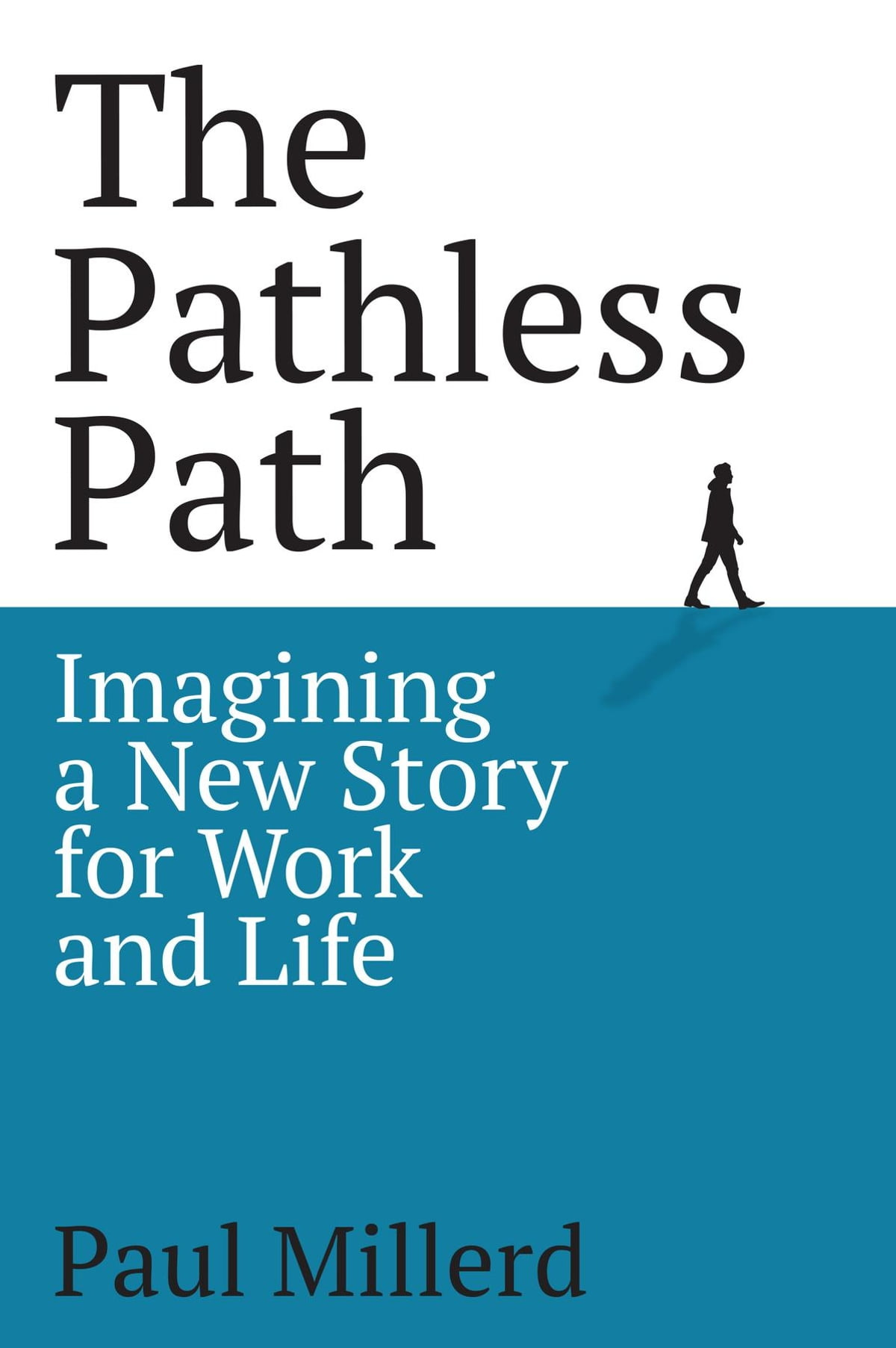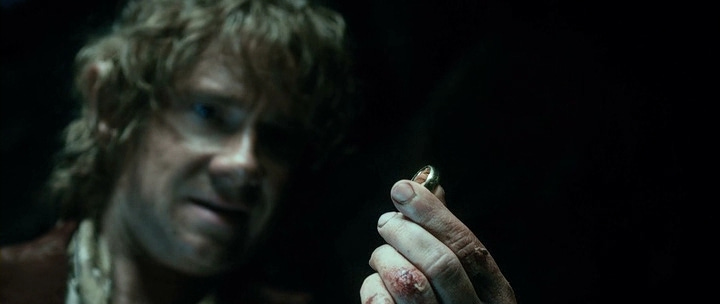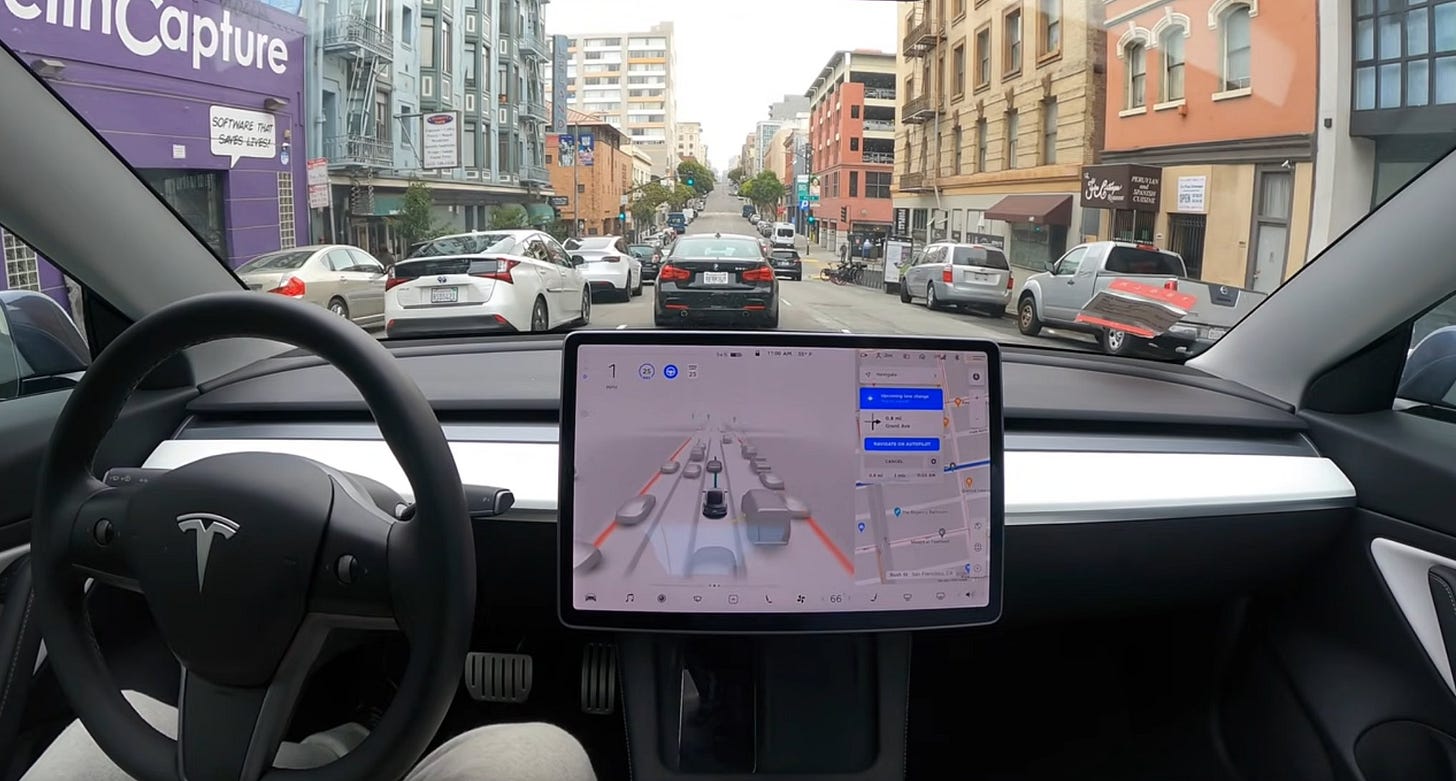Thoughts on 'The Pathless Path: Imagining a New Story for Work and Life'
Off trail treks. The age of abundance. Transcending money maxing. Elon Musk.
I met author Paul Millerd at a dinner between UConn alum and UConn business school students. I was a student.
Julia, a lovely mentor for the default path, sat across from me. I suspected her path was not for me.
Paul sat diagonally of me - dressed casual compared to students who wore suits. Paul’s mentee was Matt Garcia - a straight edge kid I knew from high school. Matt was in his suit. Matt told me “my mentor is crazy. He went to MIT, he’s quitting his consulting job and he wants to move to Taiwan. We’re opposites.”
Paul was saying things I didn’t expect to hear - not in this context.
Fast forward five years to 2022, I was reading the Social Capital annual letter by Chamath Palihapitiya. Chamath featured a chart made by Paul Millerd.
I looked up Paul and saw he published The Pathless Path. So I got myself a copy and here’s my review.
I like music that can’t be boxed into a genre. I like this book for the same reason. It didn’t feel like a self help book, nor a novel. It’s Paul sharing his story with tidbits of similar stories and exceptional quotes. The writing is great. It’s a smooth read and easy to pick up before bed. It makes no false promises. There’s prescriptions but it’s not overwhelming. The Pathless Path marches to the beat of its own drum - as it should.
Some pages felt lukewarm and left me craving spice. I like nitty gritty details like what was the first night like in Taipei? Did you ever get depressed? What little things kept you going? Coffee? Adderall? Motivational videos? How’d you cope with a lonely spell? With that said, the book is honest and refrains from over sensationalizing.
One example of that honesty:
“I had felt so alone in the previous year, not able to fully share what I was feeling, and now I was talking to someone who was not only willing to listen but who also seemed to speak the same language.” (113)
I bought this book because, like me, Paul grew up in Connecticut and attended UConn. We both create independently and bring products to the marketplace. A small business / solo entrepreneur life is high difficulty, high agency. Some people don’t have ideas, people with ideas often never start and people who start often don’t finish. Paul is a finisher. He actually quit a corporate consulting career, moved abroad and learned Chinese. Then wrote and published a book while operating a podcast and email newsletter, among other freelance ventures. That takes balls and perseverance.
Finishers are like leprechauns.
A leprechaun can lead you to a pot of gold. You might learn that gold is not what you really want after all. A pathless path is rough. Like hiking off trail. It’s rough and scary. The book is honest and authentic about that. Paul does not make it seem his story is a golden goodie to chase. I appreciate that.
The final 50 pages make any lukewarm sections worth it.
“Ultimately figuring out what to do with freedom once we have it is one of the biggest challenges of the pathless path.” 171
“For the amount of attention that the idea of freedom receives, there is still relatively little expression of it at the individual level. The default path has given us the freedom to earn money and spend it as we please, work in different fields, and have some control over our lives, but keeps many trapped in a pseudo-freedom where one is free from absolute oppression but not free enough to act with a high degree of agency.
The pathless path is the deliberate pursuit of a positive version of freedom. Revisiting Fromm's definition, "the full realization of the individual's potential, together with his ability to live actively and spontaneously,” we see that developing our own sense of agency is vital. Thus, figuring out what to do with your time is a real concern.” (page #)
Humanity is transitioning into a novel era of optionality. Surplus energy + surplus information = surplus optionality. Everyone faces the “what to do” problem. One way or another that problem gets solved. Solving it consciously and deliberately is advisable.
Like Paul Millerd, I spent 10 years focused on making numbers go up. At the end of that obsession, the numbers were up and I wanted to die. A pathless path emerged. I love numbers but where they go is their business. Mine is elsewhere. This sentiment resonates with Paul’s writing.
“I’m not in the business of being in business. I’m embracing the work of building a life and all of the connections that will make that meaningful.” 180
“I spent ten years on a path where making numbers go up was always the way forward.” 183
“One of my most important is the mantra “coming alive over getting ahead.” 182
Life can be lived, uncalculated. Mainstream American culture teaches our youth to chase high numbers. Number of goals, percentage on the test, money in the bank, GPA, views and likes, six figure salary and “body count” - sigh. If people reach adulthood without a firm concept of what is sacred in their life, the cultural default is money-maxing and prestige-maxing.
A quotation from Morrie: “The culture we have does not make people feel good about themselves. We’re teaching the wrong things. And you have to be strong enough to say if the culture doesn’t work, don’t buy it. Create your own.” 186
Paul continues “People aim for “financial independence” only to realize when they achieve it that they’re only independent in the narrow sense of being able to pay for everything” 176.
“Remember, the goal is not to get rich but always to figure out what to do next.” … “What I really wanted was the opportunity to feel useful and to do things that challenged me to grow.” 194
I love these lines. Usefulness > Numbers. Living that philosophy is not easy - it’s swimming against the tide of culture. In the deep end.
“at the end of a coffee conversation with a stranger I met” … “I asked her, “would you be comfortable receiving a cash gift from me?” A bit shocked, she said yes. I sent her $100 via a payment app and walked away” (177).
Now there’s the spice! This passage is not virtue-signaling. The exchange is an experiment. The process of culture creation.
I think many Americans agree that the default paths mostly suck. Especially for people lodged inside failing flailing legacy institutions like education, legacy media and mainstream medical. Compulsory schooling students have it rough. Many feel stuck inside legacy schooling for 13 years minimum - without hope of escaping that default path for a pathless path. Legacy schooling is a coerced default path. It was true for me. Now I work with kids and they often tell me the same - they don’t like it.
People on a default path may say “this sucks but it is what it is.” Paul suggests otherwise.
The common dogma is “well it’s worth it to get the degree / make six figures / get to retirement.”
Are you sure about that? Sounds like a gamble with your life. You may want to enjoy the journey too because at the end of those tunnels could be nothingness.
How many people are on their pathless path long term, like for decades? I suspect few and far between. It may be natural to create a custom path via pathless pathing, then lap it with subtle changes and an openness to forge anew.
I think the pathless path is akin to living consciously rather than surrendering to a corporate/state algorithm. However, defaulting to an algorithm can ease a mindbody. Solo life can actually really suck. Toggling between default paths and a pathless path may be a reasonable lifestyle. Paul says he wants to stay open to all kinds of work including a full time job.
I appreciate that Millerd encourages creativity.
“Creative output is fuel for the pathless path. Writing has been vital for staying energized and being able to connect with people that share my curiosities.” . . . “Find a way to be creative. Host a dinner party, organize a volunteer event, write a blog post, start journaling in the morning, paint a picture” … “giving is a superpower on the pathless path and will enable you to transcend feelings of separateness” 193-194
Creativity is a risk. Every commitment is a risk. It feels scary. If other people believe in us, it helps us persevere and open our hearts to sharing our work.
“I shared my story because I want to show you that even though you may experience [discomfort and uncertainty] on the pathless path, the journey can still be worth it. And it might be the only sensible option left.” 190
The book is about courage and perseverance. Dip your toes in. Then jump in the deep end and learn how to swim.
The story makes sense when Paul recaps his childhood of coding and writing. He actually built products and shared them. It’s unsurprising that a teenage blogger later publishes a book.
It reminded me of Elon Musk - a hyper creative engineer you may have heard of. When Elon was 19 he identified the internet, sustainable energy, space, A.I. and genetics as domains to influence humanity. He checked 4/5. Paypal/Twitter, Tesla, SpaceX, FSD/Optimus/Neuralink. Then genetics? We’ll see.
At age 14, my friends and I built a mountain bike trail network. Now my LLC is helping others build bike parks and go riding. We could launch the first trail building school. What we do when we are young foreshadows where our heart wants to go.
My prediction - Paul Millerd will double down on his pathless path and also settle into a family role with children. Another book will be written: The Unsettled Settlement.
Millerd makes a bold claim: “many will be forced out of their comfort zone. The sooner this happens the better because the era of living your entire life in a small, local, and familiar community is over.” 174
Ominous. Sad, too, if true. I want to see empirical evidence to support the claim. I know people who plan to spend their life in a small and familiar community. When was that era and how do we know it’s over?
It seems young people transitioning to adulthood move around for school and work, but do settle into a community. Perhaps people are more transient today than 25 years ago, but I’d like to see more data. Without a doubt, digitalization is evolving traditional socialization and lifestyle.
“Whether we want to or not, we’ll have to keep reinventing ourselves.” 174
Millerd continues “Professor and author Yuval Harari argued that “in order to keep up with the world of 2050, you will need not merely to invent new ideas and products, but above all to reinvent yourself again and again.”
That sounds like a lot of pressure.
Globalization and the internet transformed the labor force in America. Manufacturing went down and working remotely went up. Is a transition to Zoom and Slack self-reinvention? I’m not sure.
Big changes are happening and it’s not a second round of globalization or more Zoom calls. It’s artificial intelligence and sustainable energy (batteries, solar, wind). The products shipped from Tesla, DeepMind, Stable Diffusion and OpenAI are leading indicators. FSD Beta, AlphaGo/Fold, Dall-E. I am user of autonomous electric transport and generative A.I. The future is here, it’s just not evenly distributed.
Some workers will need to re-invent themselves. But not over and over if we can anticipate which jobs are sustainable. I don’t see massage therapists, dentists or mountain bike coaches disappearing. We need more organic farmers and holistic healthcare practitioners, too.
A.I. and energy tech is changing the world in a way that could enable people to work less shitty jobs. The beneficiaries (shareholders and users) of A.I. and energy tech have increasing freedom to experiment with a pathless path. It’s scary and most people won’t do it. Mainstream education is a well worn path that does its damndest not to prepare us for pathless pathing.
Books like The Pathless Path by Paul Millerd can help people find their compass and their confidence in our brave new world.
Afterword
A career is a paid pattern of behavior. The opportunity to go through familiar motions and avoid a load of existential angst. For people who can’t do the same thing every day, for those who want to maximize their usefulness, for those who believe in themselves to create without a boss - a pathless path beckons.






Great piece! What are trail barks?